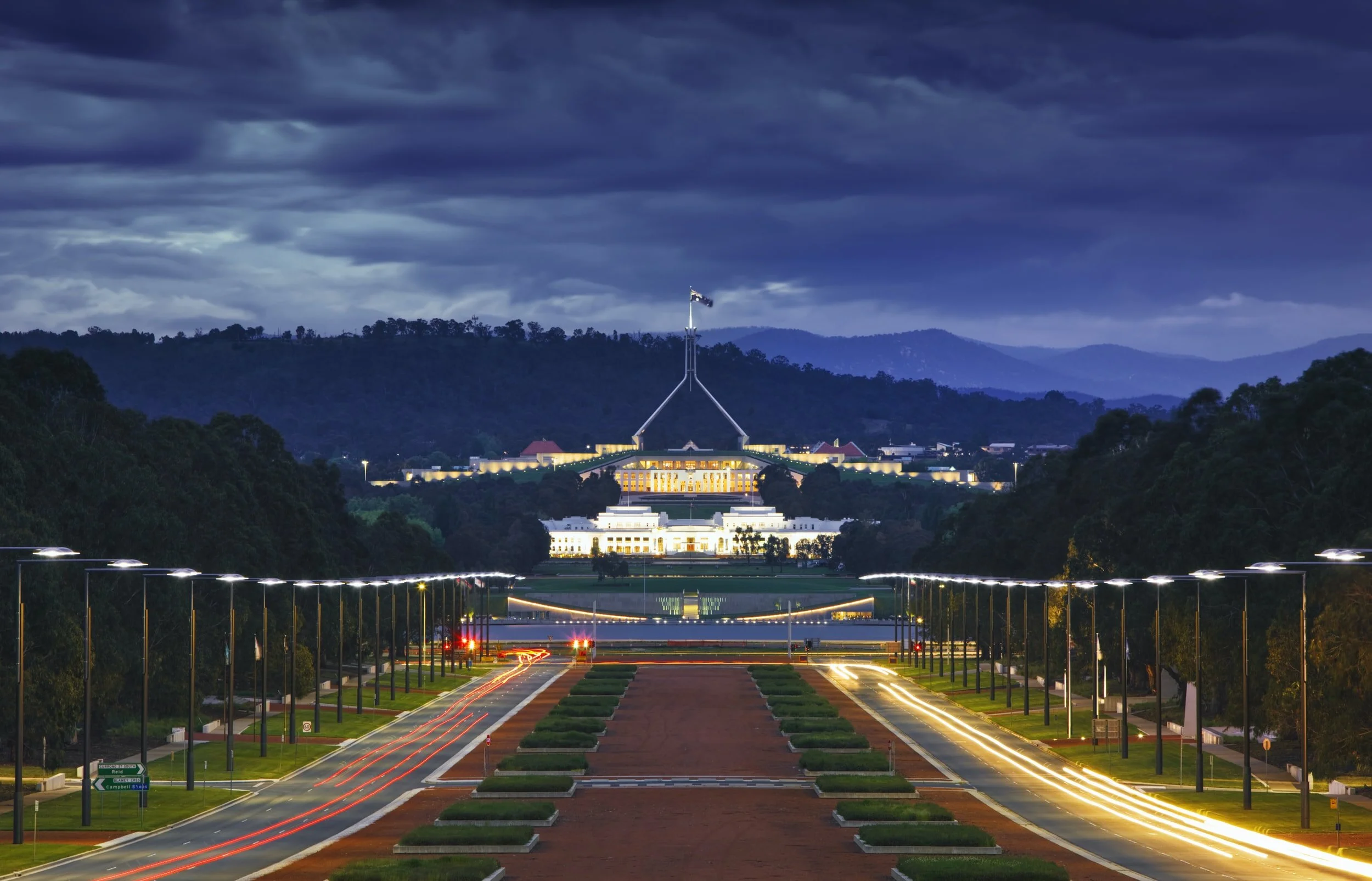‘Competition’ is often seen as a major driver of quality and efficiency in social care markets. But a team from the University of Melbourne conducted a study into the effect of competition on a range of nursing home quality and price measures, and found no evidence that competition increases quality of care, and only a weak association between competition and price. In today’s post, originally published on the Conversation, Ou Yang, Anthony Scott, Jongsay Yong and Yuting Zhang report on their findings.
Read MoreIn today’s post, the team at Children’s Ground introduces its Dine for a Difference campaign - an opportunity to gather around a table with friends and family to learn more about the depth of First Nations knowledge and history and the injustices First Nations people face in Australia. Children's Ground is a not-for-profit organisation working to create a different future with First Nations children, families and communities experiencing the greatest levels of disadvantage in Australia, through a family-centred approach.
Read MoreKathleen Herbert reflects on what needs to change so we can convince women to enter parliament.
Read MoreWomen’s engagement with employment is nearly on parity to men’s, yet workplaces have been slow to consider how women’s needs may differ. Australia is leading the way in considering how reproductive health needs can be accommodated through designated leave policies, but there is no consensus on the issue. In today’s piece, University of Sydney (@USydneyEcon) researchers Sydney Colussi (@Sydney_Colussi), Elizabeth Hill (@ElizabethHill00) and Marian Baird (@ProfMarianBaird) make the case for reproductive health leave as a key lever for gender equality in the workplace. This piece originally appeared in the Sydney Morning Herald.
Read MoreLuke Michael (@luke_michael96) highlights findings from a new research report from Children and Young People with Disability Australia that suggest problems with NDIS implementation are many and varied, and are not likely to be fixed by the Government’s proposed major reform of Indpendent Assessments. He talks over the implications with the report’s lead author Professor Helen Dickinson.
Read MoreThe Australian Government is developing a ten-year National Disability Employment Strategy to “increase employment outcomes and break down barriers that people with disability may face in finding and keeping a job.” The Strategy’s proposed priority areas, set out in a consultation paper released in April, continue down a path that has not improved employment outcomes for people with disability at scale for nearly three decades. In today’s post, adapted from the Melbourne Disability Institute’s response to the consultation paper, Sue Olney (@olney_sue), Kirsten Deane (@NDISDeane), and Bruce Bonyhady (@mdi_unimelb) explain why we must seize the opportunity presented by the COVID-19 pandemic to rethink how we frame and address disadvantage in the labour market, and why we need new approaches to policy design and implementation in this arena that reflect the current and future environment in which Australians with disability are seeking work.
Read MoreAlastair Stark, Nivek Thompson (@NivekKThompson) and Greg Marston argue that public deliberation can lead to better policy design by offering something more dynamic than a ‘snapshot’ of public opinion: it can show policymakers how citizens think and justify their decisions.
Read MoreEveryone who is concerned about Australia’s economic recovery from the impacts of COVID-19 was glued to the presentation of the Federal Budget documents on May 11th. While the budget highlights gains for women, will it actually deliver? As a document that reflects true priorities and values, the National Foundation for Australian Women (@NFAWomen) is busy dissecting and analysing the budget to bring to light how effective this budget will be in promoting gender equality. Sally Moyle (@SallyMoyle) provides insight into this important process.
Read MoreThe Commission for the Human Future (@HumanFutureAU) recently held a groundbreaking webinar on Catastrophic Risk and the Public Good: Toward our Human Future. Hosted by Dr Arnagretta Hunter (@cbr_heartdoc) - a cardiologist and the Human Futures Fellow in the College of Health and Medicine at ANU and chair of the Commission - and featuring Dr Luke Kemp, an expert in catastrophic risk now based at Cambridge, and Dr Millie Rooney from Australia reMADE, the discussion addressed two big themes: threats to humanity and what matters for people in their lives. The conclusions were that community is central to our human future, and that catastrophic risks like climate change, nuclear war and artificial intelligence can be reduced through better democratic representation, through better economics and through a deliberate acknowledgement of the value of caring and importance of community. In today’s post, Dr Hunter explores key lessons from the webinar and explains why the best hope for a better human future lies in concerted effort.
Read MoreOne of the headline figures in Tuesday’s federal budget was a A$1.1 billion dollar investment in women’s safety. This came as part of a special women’s budget statement, which pitched the budget as helping provide women with “respect, dignity, choice, equality of opportunity and justice”. It also comes amid a national crisis in domestic violence. On average, one woman is killed every week in Australia by a male current or former partner. So does the budget deliver on its promise to prioritise women’s safety and equality at home and at work? Does it do enough?
Read MoreFor decades addressing men’s violence against women has been “a women’s issue” and women’s responsibility. Women have established shelters and refuges to provide safety to women and children, women have taken to the streets to march for their safety, women have shared their lived experiences of violence and much more. We rarely hear from men or from children about their experiences of living with and witnessing men’s violence. This deeply personal piece seeks to start to change that.
Read MorePeter Martin recently argued that the government’s budget is their true statement of values. As we have watched the Federal Government trying to get onto the front foot to address their ‘woman problem’ over recent weeks, an insight into their values would be helpful. In today’s analysis, Helen Dalley-Fisher of the Equality Rights Alliance (@EraAustralia) explains how the Federal budget is the key document to provide forensic evidence that they mean business.
Read MoreWayne Herbert, disability employment professional and person with disability makes a powerful argument for inclusive education. Segregation in education is indefensible on human rights and outcomes grounds.
Read MoreAustralia’s child protection systems have long failed the families and children it was designed to protect. The structural injustices of the child protection system can be tackled by building institutional justice capital. This must include parental rights, non-violence, respectful relationships and public debate argue Dr Sharynne Hamilton and Dr Sarah Maslen.
Read MoreIn this post, Miqdad Asaria, Joan Costa-Font and Frank Cowell (London School of Economics) present their research on a seldom discussed topic - people’s aversion to income and health inequality in society. They argue that COVID-19 has made people more averse to inequalities, particularly if they have had COVID-19 themselves.
Read MoreDespite being 30 years since the Royal Commission into Aboriginal deaths in custody, families continue to lose loved ones. More than 455 Indigenous Australians have lost their lives in police or prison custody since the Royal Commission reported and according to families, the loss of life is higher than what has been reported. In today’s post, Eddie Cubillo, a proud Larrakia, Wadjigan, Central Arrernte man from the Northern Territory and Senior Indigenous Fellow at Melbourne Law School, University of Melbourne, highlights successive government’s failure to act on the Royal Commission’s recommendations and calls for taking real and effective action into Aboriginal deaths in custody.
Read MoreWhile the news has been full of the increasing financial stress many Australians are facing with the withdrawal of JobKeeper and the Coronavirus Supplement, there has been little focus on what these changes mean for children. Australia has signed on to the Sustainable Development Goals, but have been criticised for the high levels of poverty, and child poverty in particular, with little progress in evidence across the years. In today’s post, Sharon Bessell (@BessellSharon) of ANU’s Crawford School of Public Policy (@ANU Crawford) shares her important research conducted with children, who explain in their own words the stressors and constraints that poverty places on their everyday decisions, plans for the future, and family relationships. This provides fresh insight into how the less generous support settings will exacerbate wellbeing and opportunities for children and families in low-income households.
Read MoreToday’s post from Janet Hunt questions the extension of the Cashless Debit Card to more people receiving income support in Australia in light of its problematic evaluation. Associate Professor Hunt is a former president of ANTaR, a member of ANTaR ACT, and researcher at the Centre for Aboriginal Economic Policy Research. Her research has focussed on Indigenous governance, government engagement with Aboriginal and Torres Strait Islander communities, and community development over many years. This post was originally published on the ANTaR website.
Read MoreQualitative longitudinal research can make a distinctive contribution to social policy discussions and to the assessment of outcomes. In today’s post, Jane Millar, Professor of Social Policy at the University of Bath, draws on longitudinal research with lone-parent families to illustrate how change and continuity can look different over shorter and longer time periods, and to explore some of the challenges of engaging in policy debates with qualitative data. The post was originally published on The Social Policy Blog, the companion blog to the Journal of Social Policy, Social Policy and Society and the Journal of International and Comparative Social Policy.
Read More



















